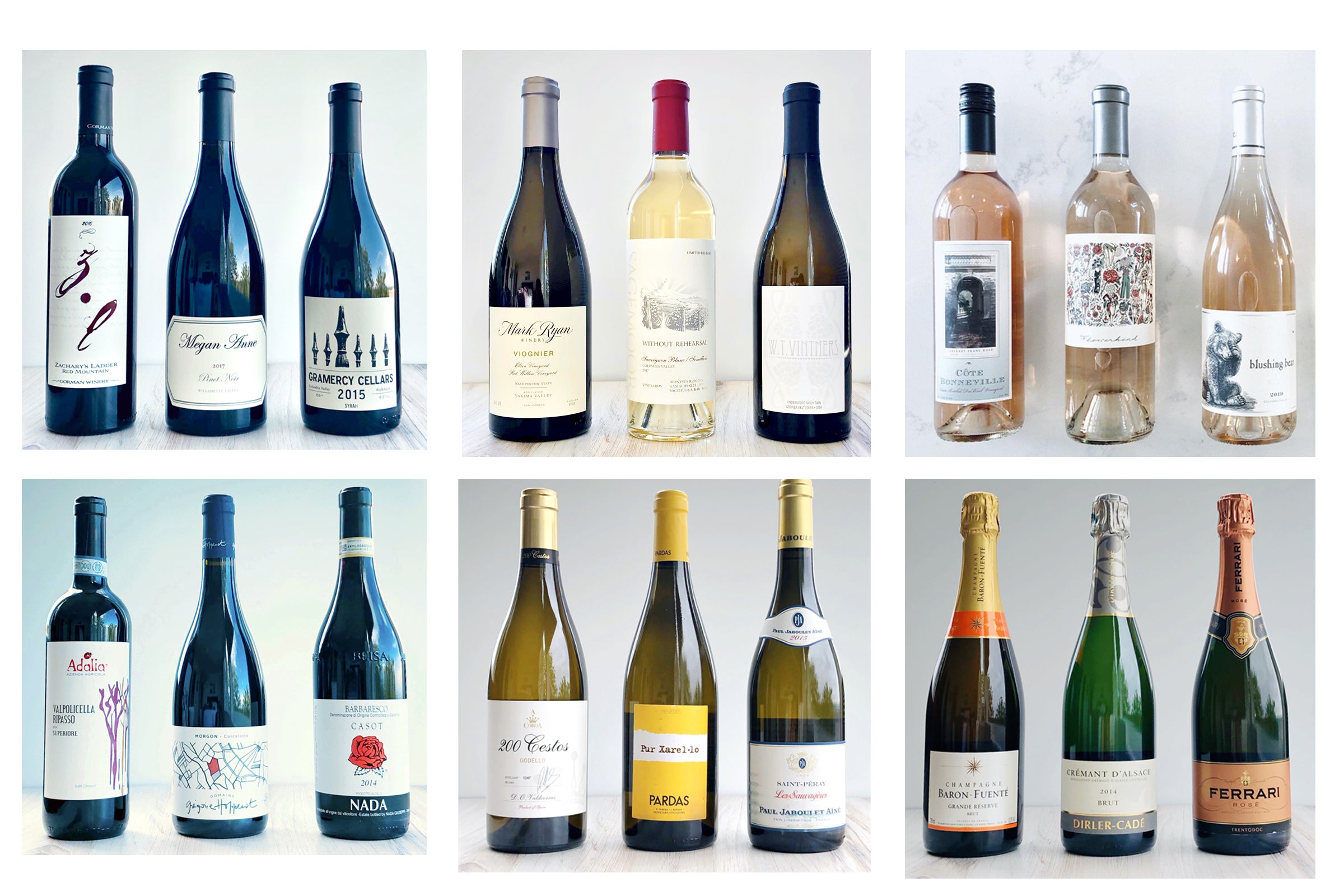Collection: Gift Style and Fun.
There's a Wine [Accessory] For That!
See All Accessories


A common wine myth is that you must pair white meats like chicken and pork with white wine. The truth is, with mild-flavored meats, the other ingredients on the plate influence the flavors of the dish more, and make a better focal point when it comes to wine pairings. This is especially true with flavor-filled, meat-smothering sauces. From tomato to pesto, BBQ to Alfredo, teriyaki and beyond, always remember, "The Sauce is Boss."
Tomatoes and tomato-based sauces are high in acid, and pair best with wines that have elevated acidity, too. Some great matches are Crianza Riojas (Tempranillo), basic Valpolicella (Corvina), Barbera and our favorite, Sangiovese- the main grape in this Chianti Classico.
If your tomato-based sauce has a rich, fatty meat, you can play with wines with a bit more tannins, too. A classic Brunello, or a Spanish Toro would be a great match.
Both sauce types are dominated by herbal, "green" flavors. A safe bet is to match these notes with wines that also are "green." Aromas of bell pepper, tarragon, fennel come from a grape compound called Pyrazine. White wines like Sauvignon Blanc and Grüner Veltliner are often rich in pyrazines and can make a great match. Their high acidities also stand up to the vinegar and lime often found in Chimichurri.
Other whites, like Chardonnay, Albariño and Pinot Grigio can pair well with pestos, though won't provide the herbal balance.
Red grapes such as Cabernet Sauvignon, Cabernet Franc and Carmenere can also have elevated pyrazines and notes of bell pepper, for example. Stick to cool climate examples and be careful to avoid overly oaked versions which can overwhelm the sauce.
Rich/creamy/buttery sauces like Alfredo, Beurre Blanc and Hollandaise can pair with full bodied wines like Viognier, warm climate Chardonnay, Grenache Blanc and Marsanne/Roussane blends. Though try to avoid wines with a lot of new oak, as vanilla, cedar and spice notes can clash with the delicate flavors of creamy sauces.
Alternately, lighter body wines with high acidity, like cool climate Chardonnay or sparkling wines can pleasantly "cut through" the richness and refresh the palate.
With subtle grassy/green notes and palate-cleansing acidity, Sancerre (Sauvignon Blanc) and lighter Grüner Veltliner can pair great with herbal cream sauces like tarragon-laden Bearnaise.

Teriyaki sauces are tangy, sweet, savory and salty. A killer flavor combination. Riesling, whether dry, or better yet, off dry, can be a fantastic match. The very aromatic fruity, floral notes of a Gewurtrminer also work well. If your teriyaki leans to the sweet side, wines with plump fruit like Beaujolais Neuveuax or Village or carbonic macerated wines (a technique which empasizes fruitiness) can be a nice match. Teriyaki sauces with more rich umami notes can handle earthy flavors in wines like Burgundy or Oregon Pinot Noir.

Be Careful with Spice
When it comes to spice, you'll want to grab wines with lower alcohol and moderate to low tannins. Both alcohol and tannins can exacerbate and be exacerbated by high spice. Wines with a little sweetness (and low alcohol) like off-dry Riesling or Moscato can make a beautiful pairing for spicy foods and sauces.
BBQ sauce is full of flavor, spices and often notes of smoke. These rich flavors match well with Rhône varietals like Grenache, Mourvèdre and Syrah (or GSM blends), which are often full of red fruits, black pepper, dried herbs and smoky/meaty notes.
If your sauce has a bit of sweetness, you'll want to make sure your wine has plenty of plump, rich, ripe fruit. New World Shiraz from Australia, Old-vine Zinfandel from California and Argentinian Malbec work great.





 Add Photo &/or Message ($6.00)
Add Photo &/or Message ($6.00)
 Add Another Bottle
Add Another Bottle

 Add Photo & Message ($6.00)
Add Photo & Message ($6.00)
 Add Photo & Message ($6.00)
Add Photo & Message ($6.00)
There's a Wine [Accessory] For That!